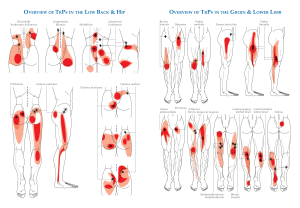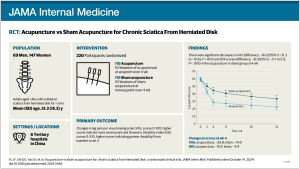Best Painkillers for a Herniated Disc

, a common source of back pain, can make daily life difficult. A herniated disc occurs when a spinal disc’s soft, jelly-like center pushes through a tear in the tougher exterior. This can irritate nearby nerves, leading to pain around the disc, radiating pain, numbness in the arms or legs, or weakness.
When back pain interferes with your day-to-day activities, you want pain relief fast. The best painkillers for a herniated disc depends on where your pain is located. Some options are available over the counter, and others are by prescription.
Axial Pain: Midline or Focal
Axial pain refers to pain directly in or near the spine. It may be midline, meaning the pain encompasses a portion of your neck or back but doesn’t extend outward. The pain may be focal or distinct to one spot. Herniated discs occur most often in the lower back or the next.
Pain Management Options for Axial Pain
1. NSAIDs (Nonsteroidal Anti-Inflammatory Drugs): These medications, like ibuprofen and naproxen, reduce inflammation and alleviate pain. They are often the first line of treatment for mild to moderate axial pain. Your doctor can prescribe stronger NSAIDs, like meloxicam or diclofenac, if needed.
2. Acetaminophen: Acetaminophen can effectively manage axial pain, especially when combined with other treatments. Acetaminophen is considered to be a non-opioid analgesic rather than an NSAID.
3. Muscle Relaxants: These medications can help relieve muscle spasms, which are often a secondary symptom of a herniated disc.
4. Steroid Packs: Oral steroids can significantly reduce inflammation and pain. They are typically used for short-term relief due to potential side effects with long-term use.
5. OTC Lidocaine Patches: These patches provide topical pain relief by numbing the area around the herniated disc.
6. Ice/Heat Therapy: Alternating ice and heat can help reduce inflammation, soothe pain, and promote muscle relaxation.
Radiating Pain: Weakness, Numbness, Tingling
Radiating pain happens when nerves that come out of the spinal cord are compressed. It can extend from the neck down to the arms or from the lower back into the legs. It may be accompanied by weakness, numbness, or tingling sensations.
Pain Management Options for Radiating Pain
1. NSAIDs: Like with axial pain, NSAIDs are effective in reducing inflammation and alleviating radiating pain. Since radiating pain is often due to a more severe herniation, prescription NSAIDs may be necessary.
2. Muscle Relaxants: These can also be beneficial for radiating pain, especially when muscle spasms are present.
3. Steroid Packs: Oral steroids can reduce inflammation and nerve irritation, providing relief from radiating pain.
4. Lidocaine Patches: Topical lidocaine can sometimes be helpful for radiating pain by numbing the area.
5. Gabapentin: Particularly effective for nerve-related pain, gabapentin is often prescribed for managing radiating pain due to its ability to stabilize nerve activity.
Best Painkillers for a Herniated Disc
Pain management for a herniated disc depends mainly on the type and severity of pain experienced. Finding the best painkillers for a herniated disc helps manage pain in the short term while longer-term treatments like physical therapy, massage therapy, or even surgery are pursued.
While some medications are available over the counter, working with a physiatrist or neurosurgeon is the best approach. They will help you identify the exact cause of your back pain and its location. Most importantly, they will help you develop an effective treatment plan.
Don’t continue to live with back pain from a herniated disc – today!




